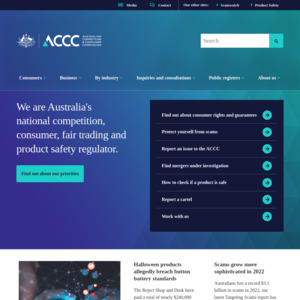I've been invited by the ACCC to prepare a formal submission in relation to breaches of Australian Consumer Law within the veterinary industry. I have asked the ACCC for advice on the anti-competitive nature of regulation in this field and been advised that it has no power to act in respect of Government.
In order to support that submission I need your stories.
We all know that vet fees are high. In my view there are several reasons for this.
The Australian Pesticides and Veterinary Medicine Authority (APVMA) administers a piece of legislation that expressly protects monopolies on veterinary medications. https://apvma.gov.au/node/1072
The veterinary industry is dominated by a single large corporation, Greencross/Petbarn, which has a strongly integrated supply chain that includes wholesale and importation entities.
Greencross is a large donor to the RSPCA, which supports its activities and benfits from that support both by direct donations and through the sale of high cost pet insurance products which in turn support the high charges made by vets.
The Australian Veterinary Association (AVA) is also strongly supported by suppliers to the industry, including medicines,pet food, equipment and services, including insurers. In my view this creates a strong incentive for that organisation to advocate for overservicing.
There is no independent oversight of veterinary practise. It is self-regulated.
Individual vets have a strong incentive to advocate for the use of expensive equipment they have leased or purchased.
The RSPCA has become a large corporation in its own right and frequently acts in repugnant ways in pursuit of financial rather than animal welfare interests.
Both the RSPCA and APVMA operate as regulators for animal welfare and both organisations are driven by a cost-recovery model which creates an incentive for punitive enforcement and in some cases to aggressive enforcement action unjustified by the circumstances.
Governments condone the RSPCA's abuse of powers in order to cost-shift compliance activities.
Veterinary schools, in common with some other vocational professional education schools are training students in risk management practises and business models that create an incentive to overservice.
I'd love to have your stories. If there are any journalists who subscribe to this site I'd be happy to provide you with any information you need.
IF you would like to provide information in confidence you can send it to [email protected]. I give you my word that no identifying information will be used without your permission. I may contact you to discuss things if you are agreeable. Please say so if that's the case.
**EDIT
One of the eagle-eyed contributors to this thread has pointed out that pharmacists are empowered to fill veterinary prescriptions. I'd strongly recommend that people ask their vet for a prescription rather than handing over cash for possibly inflated prices. Thanks wordplay.

@Craigminns:
That's not what I said at all. That's not trickle down economics at all, that's a completely different concept. Using big words doesn't work when you talk to someone who knows what they're talking about.
Well you have the right to have whatever political beliefs you want. The truth is there's nothing illegal about a surgeon being rich. That's the end of the story really.
I've contributed heaps if you've bothered to read what I posted rather than just carry on spouting nonsense.